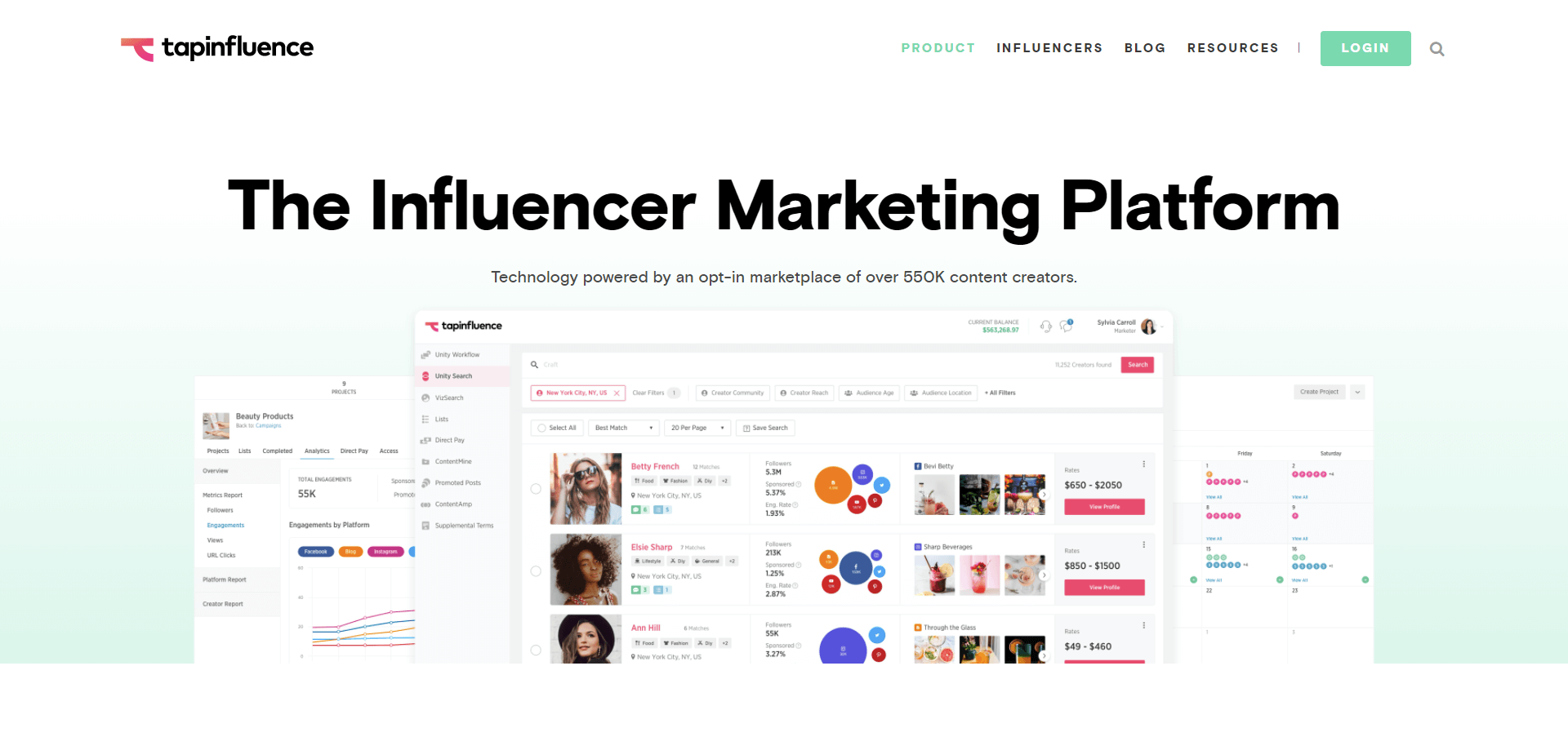In today's digital landscape, influencer marketing platforms have become instrumental in connecting brands with influencers to reach their target audience effectively. This guide delves into the world of influencer marketing platforms, offering insights and strategies to maximize their potential for businesses of all sizes.
As we navigate through the nuances of different types of platforms, selecting the right one, and optimizing campaigns, you'll gain a deeper understanding of how influencer marketing can elevate your brand's visibility and engagement online.
Overview of Influencer Marketing Platforms
Influencer marketing platforms serve as intermediaries that connect brands with influencers to collaborate on promotional campaigns. These platforms provide a centralized space where businesses can search for influencers that align with their target audience and brand values, negotiate partnerships, and track campaign performance.
Connecting Brands with Influencers
Influencer marketing platforms utilize algorithms and data analytics to match brands with influencers who have a following that fits the brand's target demographics. Brands can browse through a database of influencers, view their audience demographics and engagement rates, and reach out to collaborate on sponsored content.
Benefits of Using Influencer Marketing Platforms for Businesses
- Access to a Diverse Pool of Influencers: Businesses can choose from a wide range of influencers across different niches and social media platforms to find the perfect fit for their campaign.
- Streamlined Collaboration Process: Platforms streamline the communication and collaboration process between brands and influencers, making it easier to negotiate terms, deliver content, and track campaign performance.
- Data-Driven Insights: Influencer marketing platforms offer analytics and performance metrics that allow businesses to track the effectiveness of their campaigns, measure ROI, and make data-driven decisions for future marketing strategies.
- Cost-Effective Marketing: Working with influencers through platforms can be more cost-effective than traditional advertising, as businesses can reach a targeted audience through authentic influencer endorsements.
Types of Influencer Marketing Platforms

Influencer marketing platforms come in various forms, each offering unique features and functionalities to help brands connect with influencers and reach their target audience effectively.
Self-Service vs. Full-Service Platforms
Self-service influencer marketing platforms provide brands with tools to search, connect, and collaborate with influencers independently. Brands have control over the entire process, from selecting influencers to managing campaigns. On the other hand, full-service platforms offer end-to-end solutions, including influencer vetting, campaign management, and performance tracking, providing a hands-off approach for brands.
Marketplace-Style vs. Influencer Relationship Management Platforms
Marketplace-style platforms act as a marketplace where brands can browse through a variety of influencers, compare metrics and pricing, and choose the best fit for their campaigns. These platforms focus on connecting brands with influencers based on data and metrics.
In contrast, influencer relationship management platforms prioritize building long-term relationships between brands and influencers. These platforms emphasize personalized connections, communication tools, and campaign optimization based on influencer relationships.
Features and Functionalities of Popular Platforms
Popular influencer marketing platforms like AspireIQ, Upfluence, and Traackr offer a range of features to streamline the influencer marketing process. These platforms provide influencer discovery tools, campaign management dashboards, performance analytics, influencer relationship management tools, and more. Brands can leverage these platforms to find the right influencers, track campaign performance, and optimize influencer partnerships effectively.
How to Choose the Right Platform
When selecting an influencer marketing platform, it's crucial to consider various factors to ensure it aligns with your business needs and goals. Here is a guide to help you evaluate and choose the right platform for your influencer marketing campaigns.
Key Factors to Consider
- Audience Demographics: Look for platforms that provide detailed insights into the demographics of influencers' followers. Ensure that the audience aligns with your target demographic to maximize the effectiveness of your campaigns.
- Engagement Metrics: Evaluate the platform's ability to track and analyze engagement metrics such as likes, comments, shares, and click-through rates. Choose a platform that offers robust analytics to measure the success of your campaigns.
- Pricing and Budget: Consider the pricing structure of the platform and whether it fits within your budget. Some platforms offer different pricing tiers based on the features and services provided.
- Campaign Management Tools: Look for platforms that offer efficient campaign management tools to streamline the process of finding, collaborating with, and tracking influencers. Features like automated reporting and influencer search filters can enhance your campaign efficiency.
- Reputation and Reviews: Research the platform's reputation and read reviews from other users to gauge the platform's reliability, customer support, and overall user experience.
Maximizing Results with Influencer Marketing Platforms
In order to maximize results with influencer marketing platforms, it is essential to implement effective strategies, measure campaign success, and build strong relationships with influencers. By following these key steps, brands can ensure their influencer campaigns are successful and yield optimal results.
Optimizing Influencer Campaigns
- Identify the right influencers for your brand by analyzing their audience demographics, engagement rates, and content relevance.
- Create authentic and engaging content briefs that align with both the influencer's style and the brand's message.
- Encourage influencers to create user-generated content to increase authenticity and trust with their followers.
- Utilize platform tools for tracking campaign performance and making real-time adjustments to optimize results.
Measuring Campaign Success
- Track key performance indicators (KPIs) such as engagement rates, click-through rates, and conversion metrics to evaluate the impact of influencer campaigns.
- Utilize platform analytics to assess the reach, impressions, and overall effectiveness of influencer content.
- Compare campaign results to set benchmarks and objectives to determine the success of the influencer marketing strategy.
Building Long-Term Relationships with Influencers
- Communicate regularly with influencers to provide feedback, discuss future collaborations, and strengthen the partnership.
- Offer incentives such as exclusive deals, early access to products, or ongoing partnerships to maintain a long-term relationship with influencers.
- Show appreciation for the influencer's work by acknowledging their efforts, promoting their content, and fostering a positive working relationship.
Last Point

In conclusion, influencer marketing platforms present a powerful tool for brands to collaborate with influencers and drive impactful campaigns. By leveraging the right platform and implementing best practices, businesses can achieve remarkable results in their marketing efforts. Stay informed, stay engaged, and watch your brand soar to new heights with influencer marketing platforms.
FAQ Guide
How do influencer marketing platforms benefit businesses?
Influencer marketing platforms help businesses connect with relevant influencers, amplify brand visibility, and reach target audiences more effectively than traditional marketing methods.
What factors should businesses consider when choosing an influencer marketing platform?
Businesses should evaluate platform features, audience demographics, engagement metrics, and pricing models to ensure alignment with their marketing goals and budget.
Can businesses measure the success of influencer marketing campaigns through platforms?
Yes, businesses can track campaign performance, engagement rates, and ROI using platform analytics to evaluate the effectiveness of influencer collaborations.





